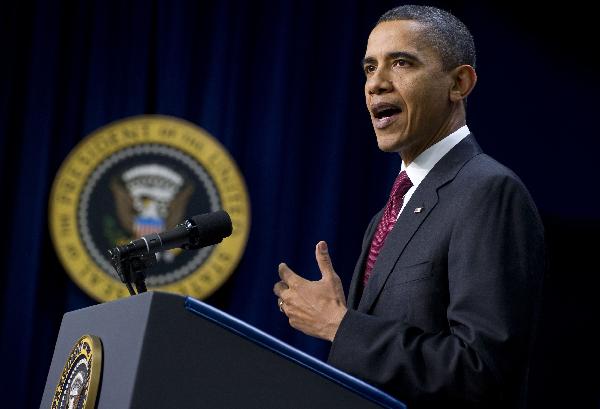Obama signs tax cut bill into law
|
US President Barack Obama speaks prior to signing bipartisan tax legislation that extends tax cuts signed by former US President George W. Bush and renews benefits for the unemployed during a ceremony in the Eisenhower Executive Office Building adjacent to the White House in Washington, DC. [Xinhua/AFP] |
U.S. President Barack Obama on Friday signed the tax cut bill into law, the first major legislation that has enjoyed bipartisan support since he took office.
"This is real money that is going to make a real difference in peoples' lives," Obama said at a ceremony to sign the bill at the White House. "It's a good deal for the American people; this is progress and that's what they sent us here to achieve."
The bill, with a price tag of 858 billion U.S. dollars, will extend the soon-to-expire Bush-era tax cuts at all income levels for another two years, lower payroll taxes by 2 percentage points and provide additional jobless benefits.
The measure, a compromise between the president and Republican leadership, is so far the first major bipartisan legislation under Obama's presidency. The healthcare reform law, one of Obama's most significant legislative accomplishments, cleared the Congress in March with almost no Republican support.
"There are some elements of this legislation that I don't like . .. some elements that members of my party don't like," said Obama. "There are some elements that Republicans here today don't like. That's the nature of compromise -- yielding on something each of us cares about to move forward on what all of us care about."
While the bill enjoyed wide support from Republicans, it also encountered strong backlash from his own party, particularly from the liberal wing, who blast the package as too generous to the rich.
The new measure is seen as a likely boost to the struggling economy, but would pile onto the federal debt that some fear is nearing dangerous levels.
The bill will add to an accumulated 13.86 trillion dollars of national debt that is now equal to more than 90 percent of the U.S. economy.
 0
0 








Go to Forum >>0 Comments